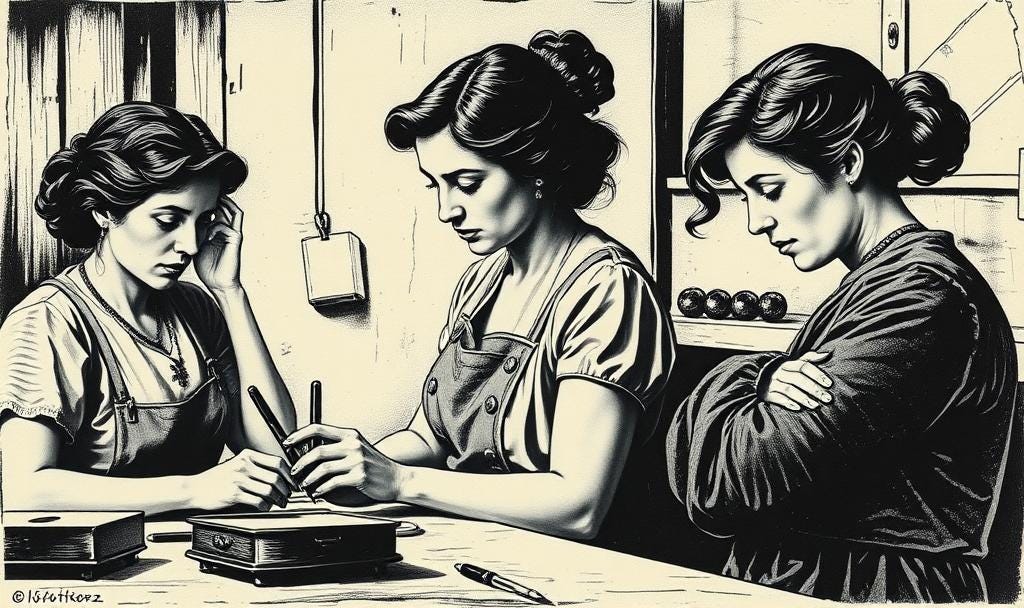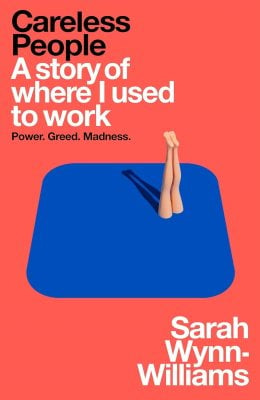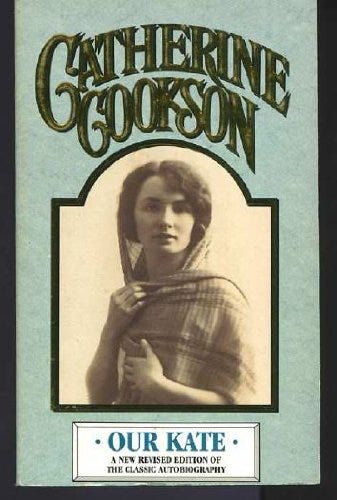Nevil Shute, the Careless People of Facebook and Fictional Women Entrepreneurs
Does old-fashioned fiction offer better role models for working women than in a 21st century memoir?
Was A Town Like Alice a better place for women than Silicon Valley? Did a Victorian “man’s man” have a better vision of women’s economic potential than a cutting-edge twenty-first century tech giant?
I’ll briefly make the case before moving on to a list of women entrepreneurs in fiction who can stand next to Nevil Shute’s iconic Jean Paget in A Town Like Alice.
This last week I’ve been reading Careless People by Sarah Wynn-Williams, her newly-published memoir of seven years working in public policy at Facebook. At times it reads like Succession – rich people in a corporate bubble who are increasingly disregarding of the effects of their actions on the ordinary citizens of the world. (Hence the title Careless People, which is a quote from The Great Gatsby, and a reference to how the rich are able to smash things up and walk away.) Unlike Succession it’s not about a family though, and the people it describes initially shared a sense of idealism to “make the world more open and connected”. Whether this was always a veneer, whether the effect of growing so large changed that, whether that change was driven by the vanity and weaknesses of individuals or by the imperative to endlessly grow subscribers and profits – i.e. aggressive 21st century capitalism – and whether all this was inevitable or not, are questions that will be asked for a long time and about more companies than Facebook.
I certainly found myself thinking about the well-worn adage ‘All power corrupts and absolute power corrupts absolutely’ as I read it.
It’s very odd that the capitalism described by Shute in postwar Australia, should seem so much more empowering to women than that of twenty-first century California.
Perhaps less predictably, I also found myself comparing it with Nevil Shute and his 1950s classic A Town Like Alice. I wrote about this novel in my last post, and its theme of women and entrepreneurship. It’s very odd that the capitalism described by Shute in postwar Australia, should seem so much more empowering to women than that of twenty-first century California. It’s particularly odd as Shute was, according to his daughter Shirley, a “man’s man” who did not really understand women, certainly did not understand her, preferred to socialise with other men and was in many respects a “Victorian” in the way he approached life (Shute was born in 1899, towards the end of Victoria’s reign).
Facebook, by contrast, had a female second-in-command who wrote a famous, bestselling book about how women could Lean In and so excel at work. However, according to Wynn-Williams, the reality of working there was very different, especially if, like Wynn-Williams, you became a mother. Wynn-Williams giving birth to her first child while attempting to respond to a briefing request by email is particularly memorable: her doctor tells her, “you should be pushing ... but not send”. Later she was sent on dangerous trips, regardless of the breastfed baby at home, and she viscerally describes painful breasts leaking milk as her breast pump fails to work with the local electricity supply. Facebook parents who could afford it had armies of nannies; those who didn’t felt forced to pretend to colleagues that their domestic lives did not exist.
Facebook’s response when it’s female employees finally began to voice some of their dissatisfaction was an “ally” scheme which enabled male employees to reward other male employees when they saw them acting as good “allies” to women. By amassing brownie points in this way (via an “#ally bot”) they also got rewarded by the company at review time. This story reminded me of why I have become pretty much allergic to the word “ally” these days.
By contrast A Town Like Alice has a more traditional 1950s view of women and their roles. (Not surprising, it was published in the 1950s.) Yet, as I argued in my post, it’s actually a very positive picture of women seizing economic opportunity, and by doing so having a positive effect on those around them.
Of course, A Town Like Alice is a novel. Jean Paget, the female entrepreneur, is an idealised figure. Yet there are plenty of real-life examples of how women can have a positive effect in the workplace. There’s been a lot of discussion of the impact of women on economic development as the recipients of microloans. And in the early days of computers, for example, women were sometimes at the forefront. Yet the world Wynn-Williams describes is a very male one. Is there a relationship between that fact and some of the other problems of tech capitalism? Or would the outcomes have been much the same?
Female Entrepreneurs in Fiction
In my previous post I also asked for examples of other female entrepreneurs in fiction – that got a big response, so I’m listing them here. Most, I haven’t read, so the list is also a future guide for me. Examples range from highly commercial sagas and rom-coms to the historical and obscure, and there’s some TV dramas too. Many thanks to those who suggested them and please add more in the comments. I also discovered the historical substack
from (thanks to ).Maeve Binchy
A woman making her way through her own efforts in business is a recurring theme in Binchy’s novels. It’s powerful because often these women have few other options, and are subjected to the smothering expectations of small town Ireland, or else are in need to escape their charming but adulterous husbands. To be honest, I’m not always convinced by their ventures – supporting oneself through lace-making? And teaching a weekly Italian class? (Evening Class) Forging a way through cake-making? (Tara Road) Gabbing one’s way into an office job, with no qualifications, and then taking over the company? (Silver Lake) But it’s fiction after all.
Barbara Taylor Bradford
A Woman of Substance – this massive bestseller of the 1980s is about Emma Harte, who starts off as a maid in Yorkshire, and ends up as a business tycoon. There are loads of sequels too.
Catherine Cookson
My grandmother always had a Cookson novel (large print, from the library) on the go. For decades the prolific Cookson dominated the most-borrowed from UK libraries chart, inventing the “regional saga” with her tales of North East England. I’ve not read enough to know whether female entrepreneurship is a major theme of Cookson’s novels, but it is important in her memoir, Our Kate. For, before she became a novelist, Cookson – an illegitimate child from a poor family – managed to achieve a measure of financial security, first as laundry supervisor in a workhouse, then by aquiring her own boarding house. She saved ferociously, worked enormously hard, bought property (an astonishing thing for a single woman at the time), and married one of her boarders, the grammar school teacher Tom Cookson.
Charlotte Perkins Gilman
What Diantha Did is about a young woman who leaves home to set up a house-cleaning business. I’ve read Gilman’s Yellow Wall-paper but had never heard of Diantha, until recommended by
.House of Elliott
This British TV series from the 90s (by the creators of Upstairs, Downstairs) is about two sisters who set up a dressmaking business in the 1920s, and turn it into a successful high fashion house. Suggested by my friend Jay.
Katie Fforde
My favourite Fforde novel is her first, Living Dangerously, but this romantic comedy is more about art than entrepreneurship. (At one point the heroine, Polly, decides she has to symbolically reject her economically profitable line in mugs for craft fairs, in order to embrace her destiny as a potter.) The second, A Rose Revived, though is definitely about female empowerment through business savviness. Three women working as cleaners decide to snub their exploitative boss and go it alone; their romantic adventures are intertwined with work escapades.
Kathleen Norris
Saturday's Child is about one young woman working out her place (and work) in the world, set against the unionisation of San Francisco in the first part of the 20th century. (I’ve borrowed
’s description, and thanks to her for this and the Gilman recommendation.)Mildred Pierce
Mildred Pierce is a 1941 novel by James M. Cain, a 1945 movie starring Joan Crawford, and a 2011 mini-series starring Kate Winslett. I had never heard of any of them until suggested by
and the story sounds right up my street. It’s about a divorcée opening a restaurant during the Great Depression.Dorothy Whipple
Whipple’s 1930 novel High Wages follows the adventures of Jane, who gets a job in a draper’s shop and rises through the business. This successful novel launched Whipple’s writing career. Another that sounds right up my street. Thank you
.And finally …
My own novel, Mr Keynes’ Revolution, doesn’t feature any female entrepreneurs, but certainly has some resourceful women. And for a limited time period, Amazon have chosen to include the e-book as part of a 99p special deal. So if you want to read a novel set in the 1920s and 1930s, featuring both economics and a very unusual love affair, now is your chance to pick it up for a song.











So many recommendations in here. Thank you!
Personally, I don't buy the idea that Facebook was ever benevolent, once its founders took it commercial. Zuckerberg said at one point that FB is about advertising. How could that point not have been obvious after it stopped being a campus dating app? I would wager it always was, even before. But still. Google's purpose was originally neutral. FB's never was.